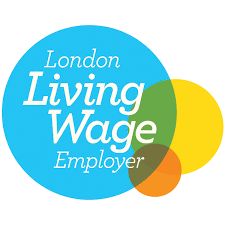
Despite all our good intentions, it is all too easy to fall into the trap of overspending at Christmas. Recent surveys found that because of the cost of living crisis, many families were planning to spend around £200 less on the festive season than in 2022. But even this reduced spend could still cause them to fall into debt.
The majority of people surveyed were having to rely on credit cards, store cards, overdrafts or Buy Now Pay Later to fund the cost of Christmas. Overall, around 20% of those surveyed expected it to take at least three months to pay off their Christmas debt. And 4.4% thought it could even take up to December 2024.
So if your finances need to recover after Christmas, you are not alone. And as a non-profit lender, Fair Finance understands only too well how stretched everyone’s finances are at the moment. Many people barely have enough to get through month to month, let alone cope with additional debt.
So what can you do to get things back on track?
Here are six quick tips that we think may help:
1. Work out how much debt you owe
The first thing to do to get out of debt is to work out how much you owe, and how much it is costing you to repay your debt. For every debt you need to know:
- The total amount you owe on that debt;
- The typical monthly repayment you are making;
- The rate of interest you are being charged on the debt.
It can feel very scary to add up all your debts, but having an overall picture of where you are at is the first essential step in getting things sorted.
2. Make a debt repayment plan
Once you have the above information, it is helpful to put together a plan to repay your debts. If you have a fixed term loan, the repayment period for that loan will already be agreed with your lender, although it is often possible to repay it more quickly if you are able to do so.
But other debts, such as credit cards, can just run on and on if you let them. The problem being that if you are only repaying the minimum amount each month, your overall debt is likely to increase. This is due to the interest being charged on your credit card balance. Your monthly repayment will go towards repaying the interest first, which can mean that your actual balance doesn’t decrease at all. So more interest is charged every month, and the overall amount you owe increases.
So it’s a good idea to start overpaying into expensive debts such as credit cards if you are able to do so. The more you can pay in, the more your balance will start to decrease and the less interest you will then be charged on it. Gradually you will start to see the difference.
3. Create a monthly budget
When creating your debt repayment plan, you need to know how much money you can realistically afford to pay each month. The best way to do this is to create a monthly budget. You can do this in a notebook, computer or app. Just make sure that your budget includes all your regular income and expenditure:
- Income is all the money that you have coming into your household each month. For example salary, wages, bonuses, tips, benefits, and money from any other source.
- Expenditure is all your regular fixed costs - such as mortgage/rent, loan/card repayments, household bills, subscriptions etc - plus all other variable costs such as food, transport, clothes, toiletries, children, pets, social and leisure.
Creating a monthly budget will help you to understand where your money goes each month, and whether you have enough income to cover all your expenditure.
4. Monitor your spending
Once you have created your monthly budget, you also need to monitor your spending so that you can see whether or not your budget is accurate. Many people find that even when they have a monthly budget that seems to work on paper, they still end up overdrawn at the end of the month and have no idea why.
So it’s important to take time to record all your spending for a couple of months to see where your money is actually going. You may find that you are spending a lot more on some things than you realised. If this is the case, you need to decide whether to cut back or to allocate more money from another part of your budget.
Monitoring your spending may also make you realise that you are living beyond your means and there is more money going out than coming in. If this is the case the next step is to find ways to reduce your expenditure or increase your income - or ideally both.
5. Take steps to reduce your expenditure
Here are five ideas that may help to reduce your expenditure:
- See if you can get better deals from your current suppliers of services such as energy, TV/broadband, or phone. If not, check comparison websites such as Money Supermarket and Uswitch to see whether it is worth switching.
- Double check all your direct debit payments to make sure you are only paying for things that you still need.
- Shop around for everything you need, for example finding the best loyalty card offers at the different supermarkets.
- Set yourself a different “no spend” target every week. Think of something non-essential that you tend to spend money on and cut it out just for one week
- Try trading favours with friends to help each other with things like babysitting, pet sitting, DIY, decorating, technical support, car maintenance, hair and beauty instead of paying for them.
6. Look into possible ways to increase your income
Here are five ideas to try that could potentially increase your income:
- Start looking for a new job that would pay more than you are currently getting;
- Set up a small business offering either products or services, as well as your main job;
- See if you can find some extra work in the evenings or at weekends;
- Check if you are entitled to any benefits. Fair Finance’s benefits calculator can help;
- Consider whether you could take in a lodger or rent out a room on AirBnB.
We hope that the above tips help you to recover financially from Christmas 2023, and that you will be in a much stronger financial position by Christmas 2024. But if at any stage you feel that you may need some external help to sort out your debts, there is help available. A good place to start is Fair Finance’s Money Advice tool which can point you in the right direction to find information, advice and support that is right for you.
Check back here soon for more useful financial tips from Fair Finance.
Sources:
https://www.nationalworld.com
https://www.creditfix.co.uk
https://www.theguardian.com
https://www.uk-debtservice.co.uk
https://www.bloomberg.com
https://www.experian.com
https://debtcamel.co.uk
https://www.thisismoney.co.uk




